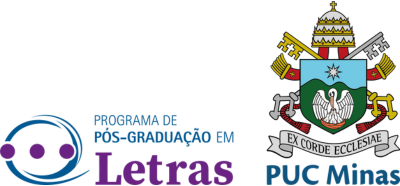Fatores relacionados à neutralização de róticos e à despalatalização de [tʃ] e [dʒ] em português por hispanofalantes
DOI:
https://doi.org/10.5752/P.2358-3428.2023v27n60p439-465Palavras-chave:
Despalatalização, língua adicional, neutralização, processos fonológicos, róticosResumo
O trabalho compreende o fluxo migratório de latino-americanos com destino ao Brasil e o português como língua adicional necessária para a inserção social desse grupo, a fim de que haja comunicação com os nativos e, assim, a compreensão de direitos e deveres no país em que se encontram. Entende-se a aquisição fonológica da língua portuguesa como integrante do processo de aprendizagem da língua e, com base na percepção geral da primeira autora a partir de suas redes sociais de uma fala comum à região do Vale dos Sinos/RS, foi realizada uma análise da leitura de um mesmo texto em língua portuguesa de quatro imigrantes de três países diferentes com o objetivo de identificar processos fonológicos diferentes na produção comum desses sujeitos e justificar sua ocorrência. Os sistemas fonológicos do português e do espanhol foram contrastados e, em análise dos áudios, foi identificada a neutralização de róticos e a despalatalização de /tʃ/ e /dʒ/, diferentemente do que aponta a fala considerada comum à região. As causas para ambos os processos são justificadas por fatores diferentes: a neutralização do R-forte foi inversamente proporcional ao tempo de residência dos falantes no Brasil, enquanto a despalatalização pode decorrer do tempo de estudos formais do falante em português brasileiro.
Downloads
Referências
DA ROS, P. Influências interlinguísticas do espanhol no português brasileiro em contexto de PLAC. Orientador: Lovani Volmer. 2022. 68 p. Trabalho de conclusão de curso (Licenciatura em Letras – Português/Inglês) - Universidade Feevale, Novo Hamburgo, 2022.
DESHAIES-LAFONTAINE, Denise. A socio-phonetic study of a Québec French community: Trois-Rivières. 1974. Tese de Doutorado. UCL (University College London).
FALCÃO, C. A. O ensino da pronúncia do espanhol na educação à distância: uma proposta didática. XXIV Jornada Nacional do Grupo de Estudos Linguísticos do Nordeste. Natal. Anais da Jornada do Grupo de Estudos Linguísticos do Nordeste, 2012.
MARTINS, R. L. INFLUÊNCIAS INTERLINGUÍSTICAS DO HUNSRÜCKISCH NA ESCRITA EM PORTUGUÊS BRASILEIRO POR CRIANÇAS BILÍNGUES DO 1o, 2o E 3o ANO DO ENSINO FUNDAMENTAL DA CIDADE DE MORRO REUTER/RS. Organon, v. 30, n. 58, 2015.
OBMIGRA. Relatório anual 2020. Disponível em: https://portaldeimigracao.mj.gov.br/images/dados/relatorio-anual/2020/Resumo%20Executivo%20_Relat %C3%B3rio%20Anual.pdf. Acesso em: 24 jun. 2022.
OTHERO, G. A.. Processos fonológicos na aquisição da linguagem pela criança. ReVEL, v. 3, n. 5, 2005.
QUILIS, A. El comentario fonológico y fonético de textos: teoría y práctica. Arco Libros, 1985.
ROBLES, A.; DEL PILAR, A. M. Interferências linguísticas e interlíngua: a aprendizagem de Português Língua Estrangeira por peruanos hispanofalantes. 2016.
VARELLA, N. K. Leitura e escrita: temas para reflexão. Porto Alegre: Premier, 2004.
WARDHAUGH, R. The contrastive analysis hypothesis. TESOL quarterly, p. 123-130, 1970.
Downloads
Publicado
Como Citar
Edição
Seção
Licença
O envio de qualquer colaboração implica, automaticamente, a cessão integral dos direitos autorais à PUC Minas. Solicita-se aos autores assegurarem:
- a inexistência de conflito de interesses (relações entre autores, empresas/instituições ou indivíduos com interesse no tema abordado pelo artigo), e
- órgãos ou instituições financiadoras da pesquisa que deu origem ao artigo.
- todos os trabalhos submetidos estarão automaticamente inscritos sob uma licença creative commons do tipo "by-nc-nd/4.0".


 Português
Português English
English Español
Español
 Italiano
Italiano






